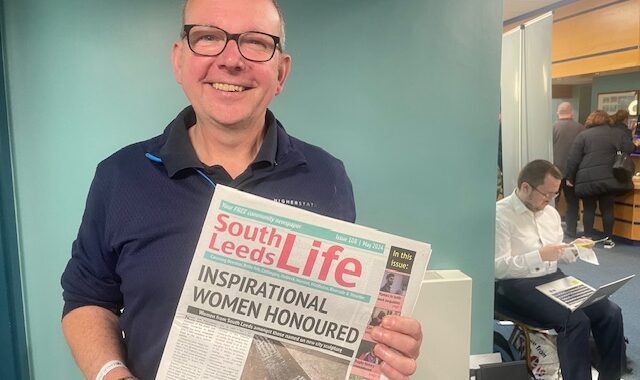Twitter has become a hugely popular social media platform which is used by an estimated 993 million users worldwide. Within the UK, Twitter users include politicians, national, regional and local government, including local councils – many of which use this and other social media as a way of communicating with their publics and other stakeholders. Whilst some social media communications, such as tweets, may be part of a formal communications strategy co-ordinated by an organisation’s public or media-relations department; other tweets may simply be an expression of personally-held views and opinions, often made by elected representatives about governmental policy, actions and decisions.
Whilst communications by governmental organisations, ministers or politicians on Twitter and other social media are a useful source of public information, arguably some communications, especially if official communications, can appear controlled and sterile in nature. Therefore the need for press freedom and independent reporting – including analysis, comment and opinion – is essential for a vibrant democracy. According to Dan Jellinek: “…deep-rooted press freedom is not just important but essential to a functioning free democratic society.” Furthermore, the ability for journalists and citizens to freely express opinion, particularly in relation to governmental business, is a legal right (save for some restrictions) provided for by Article 10 of the Human Rights Act 1998. According to the Human Rights Commission: “The right to freedom of expression is particularly important for journalists and other people working in the media. They must be free to criticise the state without fear of prosecution – this is an important feature of a democratic society.”
The emergence of the internet, and the increasing development of digital technology, has resulted in a growing hyperlocal movement where local news and information is no longer the dominion of traditional news corporations. All around the UK local people are providing valuable information and news coverage via blogs and social media, including the reporting of local council meetings right from within their own communities.
In 2013, seemingly in support of local people increasingly wishing to report on their local public council meetings, Eric Pickles, Local Government Secretary (England), published a new guide for local people (in England) explaining how they can attend and report on their local council meetings. Eric Pickles said:
“Modern technology has created a new cadre of bloggers and hyper-local journalists, and councils should open their digital doors and not cling to analogue interpretations of council rules.
“Councillors shouldn’t be shy about the public seeing the good work they do in championing local communities and local interests.
“I challenge the Welsh government to give taxpayers the same rights as those in England now have, and stop the scandal of free speech being suppressed in Wales’ town halls.”
Whilst the new guidance and Regulations do not extend to Wales (Local Government is a devolved matter in Wales), the Welsh Government’s Local Government and Government Business Minister, Lesley Griffiths, has stated: “Social media is an evolving world and an excellent tool which should be embraced. There is no legislative barrier to councillors or the public using social media or filming during council meetings.”
However across Wales, some local councils seemingly prohibit social media use, such as Twitter, during their public meetings; meanwhile other councils in Wales have reportedly changed their rules to allow social media use, including Twitter, during their public meetings.
For some local councils in Wales it seems that tweeting during their meetings is being interpreted as a form of ‘broadcasting or transmission of proceedings’ – a practice prohibited by some community councils without prior written consent. Yet, in spite of such a clause, some councils, like Pennard Community Council in Swansea for example, are refusing to grant permission for people to tweet at their council meetings, even when prior permission has been sought as per their council rules. Where local councils are actively adopting rules (known as standing orders) with such clauses, which are seemingly being used to justify the banning of tweeting during public council meetings, it could be argued that such rules and clauses are erroneous as a result of a misinterpretation of legislation.
The Public Bodies (Admission to Meetings) Act 1960 s.1(7) states: “…nothing in this section shall require a body to permit the taking of photographs of any proceedings, or the use of any means to enable persons not present to see or hear any proceedings.” The legislation clearly indicates that public bodies are not required to ‘permit the taking of photographs of any proceedings, or the use of any means to enable persons not present to see or hear any proceedings.’ However, this piece of legislation is seemingly being relied upon by some councils in Wales to actively prohibit the use of social media at its meetings. It is clear that the social media platform, Twitter, cannot enable persons not present at a public body meeting to see or hear the proceedings. Therefore to ban the use of Twitter or similar blogging tools during public meetings, on the grounds that it is a form of broadcast or transmission, is arguably an erroneous one. According to a Legal Topic Note (LTN5) issued by the National Association of Local Council Clerks in October 2013: “Tweeting or blogging at a meeting do not contravene the provisions of s.1 (7) of the 1960 Act.”
As the layer of government supposedly ‘closest to the people’, community councils in Wales are arguably becoming the least scrutinised. A general lack of participation by community members where such councils exist, together with little or reduced coverage by local traditional press/media outlets, has arguably created a scrutiny defect within this layer of local government. What is more, unlike Parliamentary, Regional Assembly, and more increasingly Local Authority proceedings where ‘over half of Local Authorities in Wales are now webcasting their proceedings’ following ‘£1.25m funding from the Welsh Government,’ community council meetings are the least likely to be live video streamed on the internet, further adding to the scrutiny deficit. Therefore, community councils in Wales are at risk of becoming the least connected to local citizens as a result of little or no press scrutiny, and low public participation at community council meetings. Furthermore, with some councils continuing to actively ban people from tweeting at public community council meetings, the risk of citizens in those local council areas becoming further disenfranchised, disempowered and disengaged with local government, is another cause for concern.
With over 730 community and town councils throughout Wales, each with the power to tax the communities they serve, public participation in the scrutiny process is arguably of vital importance, especially given the apparent decline in traditional media where the capacity to cover local council meetings is clearly limited. According to the Centre for Community Journalism: “Local journalism is facing a big number of challenges, such as fewer opportunities for journalists because of cost cutting (leading to understaffed newspapers, or even to papers closing down”. Therefore, with seemingly little or no traditional press coverage of many public community council meetings, the need for effective public scrutiny and reporting at such meetings, by community journalists and local bloggers for example, could not be more relevant.
Tweeting, blogging and videoing of local council meetings are all ways in which the scrutiny deficit can be closed and citizens empowered with the ability to hold their local community councillors and councils to account. In particular, the tweeting of local council proceedings can provide local citizens with real-time information about what is going on within their local council meetings. The use of the Twitter hashtag (⌗) can also be utilised to create and develop wider community dialogue about matters arising from council proceedings communicated on Twitter. Arguably, such dialogue and communication can help facilitate greater public participation in local government decision-making – it can also help to keep citizens informed about local services delivered by local councils. Twitter can help local people become more involved and informed about their local council; it can also enable citizens to hold councils and councillors to account for their decision-making and the reasons behind such decisions.
Given that many of the decisions made by local councils will have both benefits and implications for the citizens they serve merely highlights the need for communities to be more aware of their local council’s decisions. Community members need to be made aware of ways in which they can meaningfully participate in local council decision-making processes which may directly, or indirectly, affect them. Arguably the increasing role of community journalists in local government scrutiny, through the independent reporting of public council meetings and decisions, is as vital to a vibrant British democracy as the role played by traditional journalists. All around the UK community journalists and bloggers are highlighting local government issues, which may have otherwise gone unnoticed, by attending and reporting on local council meetings.
Therefore, the increasingly important role played by community journalists and bloggers in civic society should be more widely accepted, embraced and recognised as an essential element of governmental accountability in an ever-changing world, where digital-journalism, generated by citizens, is now a fact of life.
With breaking news stories regularly being reported through digital means – as seen via blottr.com (a community for collaborative journalism) for example – the reality of community journalism, and the reporting of breaking news by citizens, bloggers and community journalists cannot be ignored, under-valued nor avoided.
Twitter, like many forms of social-media, is now part of every day life for many people; councils who prohibit people, including community journalists, from tweeting or blogging at public council meetings are merely delaying the inevitable. The fact is, sooner or later what is discussed, debated and decided at public council meetings will inevitably be communicated to the wider community by people other than councils themselves – it is simply a matter of time. Councils who have already acknowledged such inevitabilities, in a developing digital age, are to be commended for doing what is right and proper in the interest of local government accountability and transparency. Those councils who continue, as Eric Pickles puts it, “to cling to analogue interpretations of council rules,” are arguably in danger of making themselves look undemocratic and unaccountable – a situation no governmental organisation should wish to find themselves in.
Further Reading:
- Developing a comprehensive understanding of community and town councils in Wales
- The Good Councillor’s Guide – For Community and Town Councillors
- Local Government (Wales) Measure 2011
- Welsh Government: Community and Town Councils
- Research Study into the Role, Functions and Future Potential of Community and Town Councils in Wales
Ian Ambrose is a law and public services graduate from Swansea. A former Pennard Community Councillor, Ian reports on Pennard Community Council (Swansea) meetings via his blog and Twitter account @PennardBlogger. Ian is passionate about meaningful citizen engagement and participation and is also developing an online hyper-local news provision (Gower News) for the Gower Peninsula area of Swansea. Ian is a current participant on an online FutureLearn course, Community Journalism, delivered by Cardiff University’s Centre for Community Journalism.
Image accompanying this article is copyright Maryland GovPics.





